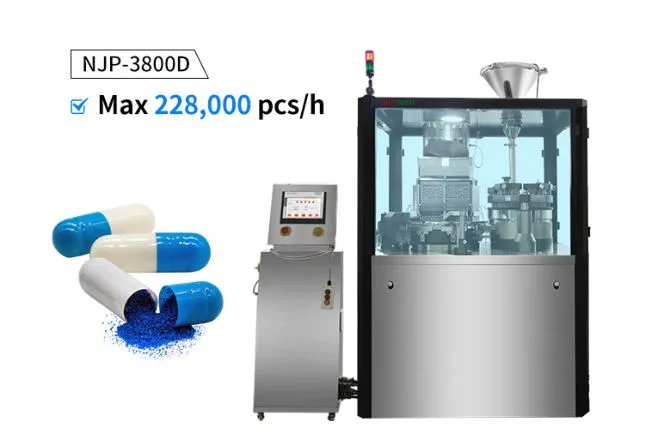The Role of a Tablet Press Machine in Pharmaceutical Manufacturing
Pharmaceutical manufacturing is a highly precise and regulated process where accuracy, consistency, and efficiency are everything. Among the many essential pieces of equipment in this industry, the tablet press machine stands out as one of the most critical. It’s the heart of tablet production, responsible for transforming powdered materials into uniform, solid tablets that meet exact dosage and quality standards.
Well explore the vital role that tablet press machines play in pharmaceutical manufacturing, how they work, their benefits, and what makes them indispensable for modern drug production.
Understanding the Tablet Press Machine
A tablet press machine, sometimes called a tablet compression machine, is a mechanical device used to compress powdered ingredients into tablets of consistent size, shape, and weight. These machines are central to the pharmaceutical industry because tablets are one of the most common and preferred forms of medication.
Pharma manufacturers depend on these machines to ensure:
- Consistent dosing: every tablet must contain the exact amount of active ingredient.
- High productivity: capable of pressing thousands of tablets per hour.
- Reliability and precision: maintaining quality throughout continuous operation.
Whether producing painkillers, antibiotics, or dietary supplements, a tablet press ensures each unit meets the same standard, ensuring patient safety and regulatory compliance.
How a Tablet Press Machine Works
The process of tablet manufacturing might look simple from the outside, but it involves precise mechanical movements and calibrated pressure levels. Here’s a step-by-step look at how the machine works:
1. Filling the Die
Powdered or granulated material is fed into a cavity called a die. This cavity defines the shape and size of the tablet.
2. Compression
Two punches, an upper and a lower one apply pressure from both sides of the die. The machine compresses the powder into a solid tablet with uniform density and structure.
3. Ejection
Once compressed, the finished tablet is ejected from the die and collected for coating, inspection, and packaging.
The process repeats continuously, allowing large-scale production with high precision and speed.
Types of Tablet Press Machines
Pharmaceutical companies use different types of machines based on their production scale and requirements. The two most common are:
1. Single-Station (Single Punch) Tablet Press
This machine is ideal for small-scale production or R&D departments. It operates with a single die and punch system, making it easy to use, clean, and maintain.
2. Rotary Tablet Press
Used for mass production, rotary presses contain multiple dies and punches mounted on a rotating turret. As the turret rotates, the punches compress the material in a continuous motion, producing thousands of tablets per minute.
Modern rotary tablet presses also include advanced automation features, pressure sensors, and data logging systems to ensure consistency and compliance with Good Manufacturing Practices (GMP).
Importance of Tablet Press Machines in the Pharmaceutical Industry
A tablet press machine is more than just an industrial device, it’s the foundation of pharmaceutical manufacturing. Let’s look at why it’s so crucial:
1. Precision and Accuracy
Every tablet must contain a precise dosage of active ingredients. These machines ensure that accuracy is maintained in every batch, avoiding underdosing or overdosing issues.
2. Efficiency in Mass Production
With the global demand for medicines constantly rising, speed and efficiency are vital. High-speed tablet presses enable manufacturers to meet demand without compromising on quality.
3. Cost-Effective Manufacturing
Tablet pressing is one of the most economical ways to produce medication. It reduces waste, minimizes labor costs, and allows for consistent output, making it a cost-effective solution for pharmaceutical companies.
4. Consistency and Quality Control
Uniform tablet weight, thickness, and hardness are essential to ensure stability and efficacy. Tablet press machines are designed to maintain consistency even under continuous production conditions.
Innovations in Tablet Press Technology
As the pharmaceutical industry evolves, so does the technology behind tablet manufacturing. Modern machines are equipped with features that improve precision, reduce downtime, and enhance safety. Some recent innovations include:
- Automatic weight control systems that adjust compression force in real time.
- Touchscreen interfaces for easier operation and monitoring.
- Data connectivity for integration with digital quality systems.
- Noise reduction and dust control to create a cleaner production environment.
These advancements make the tablet press machine not just a mechanical tool, but a smart, integrated part of modern pharmaceutical production lines.
Meeting Regulatory Standards
Pharmaceutical manufacturing operates under strict global regulations, such as the U.S. FDA, EU GMP, and WHO guidelines. Tablet press machines must comply with these standards to ensure the safety, purity, and efficacy of every product.
Key compliance considerations include:
- Cleanability and hygiene: machines must be easy to clean to avoid cross-contamination.
- Documentation and traceability: modern machines record data for every batch.
- Validation and calibration: ensuring the machine operates within defined specifications.
Choosing the Right Tablet Press Machine
Selecting the right tablet press machine depends on several factors:
- Production Volume: High-volume production lines benefit from rotary presses, while R&D labs often use single-station machines.
- Tablet Size and Shape: Dies and punches can be customized to meet specific product requirements.
- Automation Level: Advanced models include automation and real-time monitoring for greater accuracy.
- Ease of Maintenance: Machines with modular designs and quick-change components minimize downtime.
When selecting a supplier, reliability and expertise matter as much as machine quality. Rely on our three-decades-long manufacturing expertise to help you develop cost-effective and top-performing solutions that fit the pharma packaging and production environment.
The Future of Tablet Pressing in Pharma
The pharmaceutical sector continues to adopt Industry 4.0 technologies, integrating automation, data analytics, and real-time monitoring into manufacturing lines. The tablet press machine of the future will likely feature AI-driven predictive maintenance, automatic adjustment for material variations, and enhanced connectivity for complete process control.
Such innovations will not only improve efficiency but also ensure that each tablet leaving the press meets the highest quality standards.
Conclusion
The tablet press machine remains an indispensable component of pharmaceutical manufacturing. From ensuring precise dosing to meeting large-scale production demands, it embodies the balance of technology, precision, and reliability that defines the industry.
As pharmaceutical companies continue to innovate, investing in high-quality, efficient, and compliant tablet press solutions will be key to maintaining competitiveness and ensuring patient safety.
At Jinlu Packing, our commitment to quality and innovation supports pharmaceutical manufacturers around the world. With decades of expertise, we provide reliable machinery and packaging solutions that help optimize every step of your production line.



